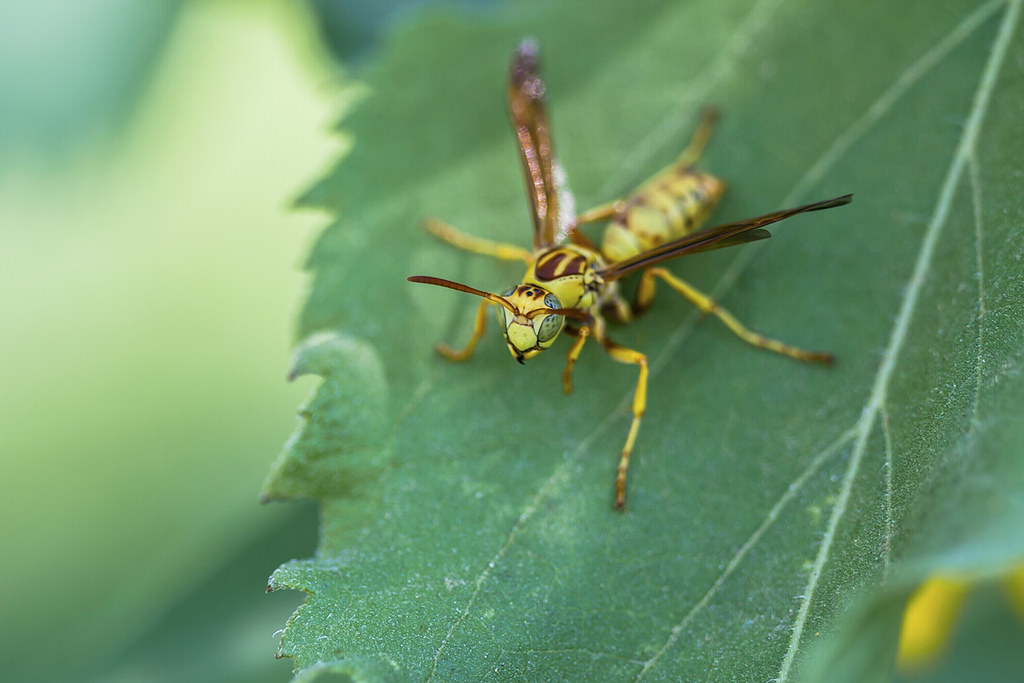Wasps are beneficial to the environment, helping control insect populations and pollinating plants. However, they can be a nuisance, especially if they build nests near outdoor spaces where people gather. Fortunately, it’s possible to deter wasps from your garden without harming them using natural and non-invasive methods. Here’s how you can make your garden less appealing to wasps while keeping them safe and beneficial.


How to Deter Wasps Naturally
The key to deterring wasps is to make your garden less attractive to them without causing harm. Scents, plants, and simple maintenance tips encourage them to stay away. Wasps are sensitive to certain smells and environmental conditions, and by utilizing these, you can reduce the likelihood of them building nests in your garden.
Use Scent-Based Deterrents
Wasps are repelled by certain strong scents that can disrupt their ability to navigate and communicate with other wasps. Some natural scents that effectively deter wasps include:- Peppermint oil: Wasps dislike the strong smell of peppermint. Combine peppermint oil and water and spray it in and aroun garden, particularly near areas where wasps tend to gather, can help keep them away. Soak cotton balls in peppermint oil and keep them in places where wasps are often seen.
- Citronella: Just like with mosquitoes, citronella can deter wasps. Planting citronella around the perimeter of your garden or using citronella candles during outdoor gatherings can help reduce wasp activity.
- Clove, lemongrass, and geranium oils: These essential oils are known to repel wasps. You can mix them with water and spray the solution in areas where you want to prevent wasps from nesting.
Plant Wasp-Repelling Plants
Certain plants are naturally unappealing to wasps, making them an excellent addition to your garden if you want to deter these insects. You can deter these insects through plants, including planting the following:- Marigolds: Known for their strong scent, marigolds can deter wasps, as well as other pests like mosquitoes and aphids.
- Spearmint: The strong aroma of spearmint can confuse and repel wasps. Planting spearmint in pots around your garden can create a natural barrier that keeps them at bay.
- Eucalyptus: This fragrant plant emits a scent that wasps find unpleasant, discouraging them from hanging around your garden.
Keep Food and Drinks Covered
Wasps like sweet foods and drinks, especially in late summer when their usual food sources become scarce. To deter wasps from buzzing around your garden, always cover food and beverages when eating outdoors. Avoid leaving sugary drinks, fruit, or food scraps exposed, as they can attract wasps looking for a meal. Properly dispose of garbage, and keep trash bins sealed to minimize food scents that attract wasps.
Remove Standing Water
Wasps need water to survive, and standing water in your garden can attract them. Keep checking for and eliminate sources of standing water, such as bird baths, puddles, and plant saucers. Ensuring that your garden is free from stagnant water will help reduce wasp activity in the area.Use Decoy Nests
Wasps are territorial and typically won’t build a nest near another wasp colony. You can take advantage of this behavior by hanging decoy wasp nests around your garden. These decoys can be bought online or at garden centers and can effectively deter wasps from building their own nests nearby.Maintain a Clean and Tidy Garden
Clean garden is less likely to attract wasps. Wasps often build nests in sheltered locations like overgrown bushes, sheds, and woodpiles. By trimming back shrubs, sealing cracks in walls or fences, and keeping your outdoor area tidy, you can remove the ideal spots for wasps to establish nests. Regular maintenance reduces the chances of them making your garden their home.What to Avoid When Deterring Wasps
While there are many ways to safely deter wasps, it’s important to avoid using methods that could harm them or the environment. Stay away from chemical sprays or insecticides that can kill wasps and disrupt the ecological balance of your garden. Instead, focus on natural, non-toxic methods that keep wasps away without causing them harm. Myths and Facts About Deterring Wasps| Myth | Fact |
| Destroying wasp nests is the best way to get rid of wasps. | Removing nests can provoke wasps; it’s safer to deter them with natural repellents. |
| Wasps will always build nests in the same place every year. | Wasps usually do not return to the same nest, but they may choose similar locations if they’re favorable. |
| All plants attract wasps. | Certain plants, like marigolds and mint, actually repel wasps. |
| Spraying vinegar or water on wasps will get rid of them. | Vinegar may not deter wasps effectively, but peppermint oil and citronella are more reliable repellents. |
| Wasps are only attracted to food. | Wasps are also attracted to standing water and sheltered spaces for nesting. |



